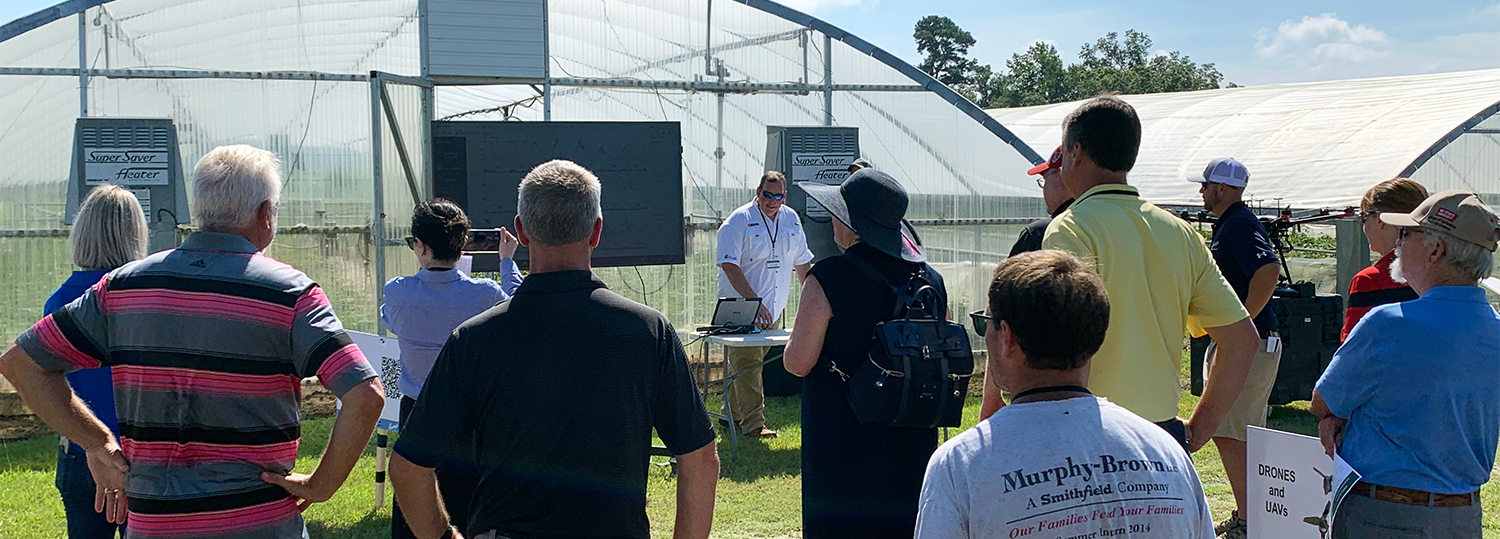They say teamwork makes the dream work. In this case, the dream is integrating agriculture and technology to create farms that can harness the power of the internet to run more efficiently. And the team is the “USDA Enabling Precision Agriculture in North Carolina” project, led by Professor Nicholas Didow (UNC-Chapel Hill).
A farmer in his past life, Didow teamed up with Jessica Zufolo (formerly from the USDA) after they met in the UNC business school. Jack McNairy from Harvey Farms in Kinston, NC, and Jason Ward from NC State University rounded out the project team. With their wide-ranging expertise, the team focuses on what Zufolo describes as the issue of technology, broadband, economic development, and agriculture all laced together.
Ward says that solutions for more productive and efficient farms are out there, but they require connectivity to be fully realized. “Otherwise, we just have these boxes across the ag landscape collecting info that never gets to where it needs to go, that never gets used to make better decisions,” said Ward. “And what we want to showcase is technologies best enabled through connectivity, and this is why it matters.”
On Thursday, August 19, the team held a showcase at Harvey Farms to demonstrate what’s possible when a farm is connected to broadband. At five different field demonstration stations, attendees learned about new and repurposed technologies that are changing the future of farming.
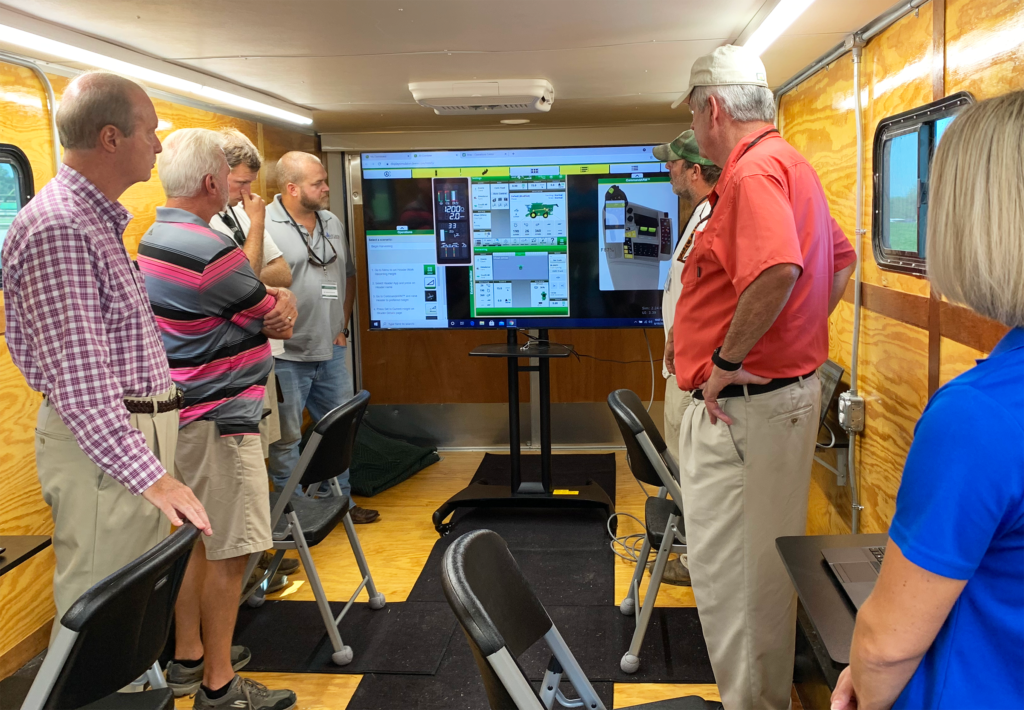
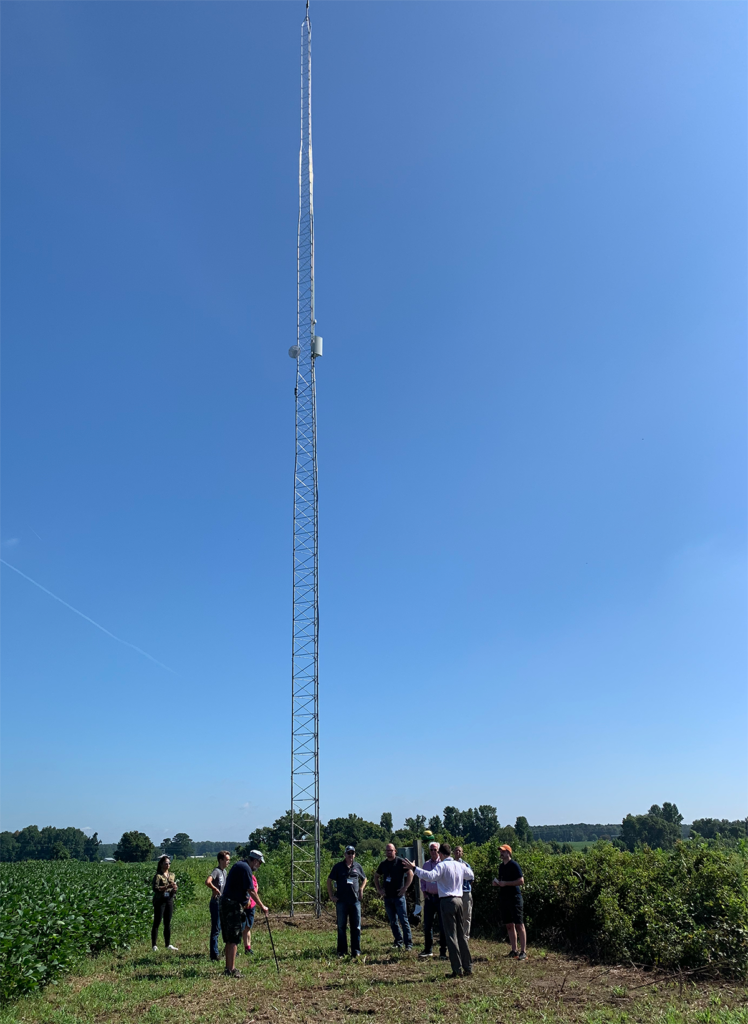
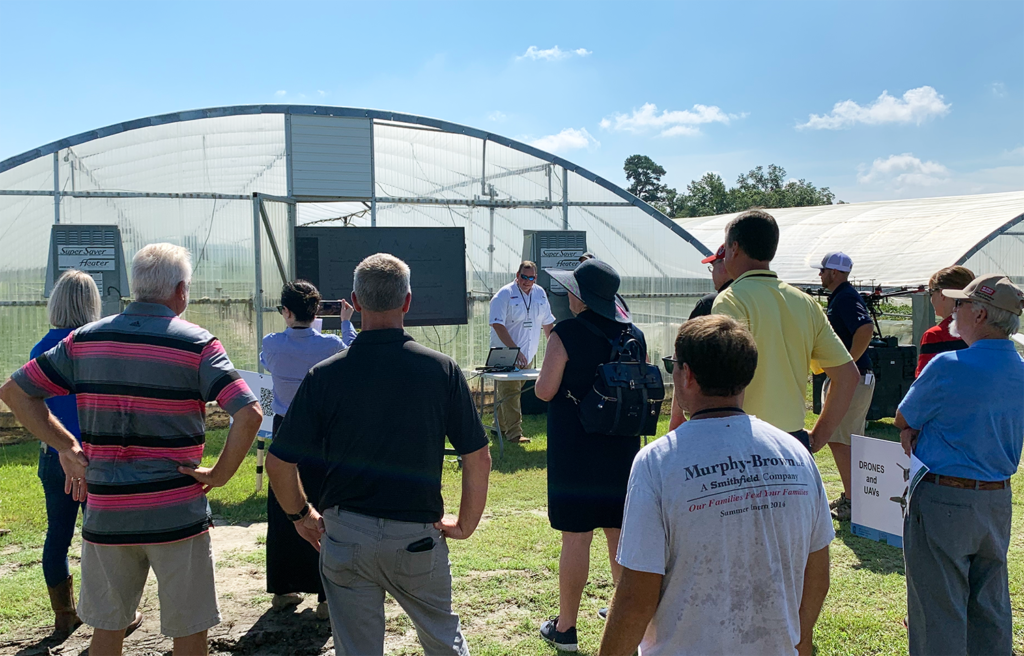
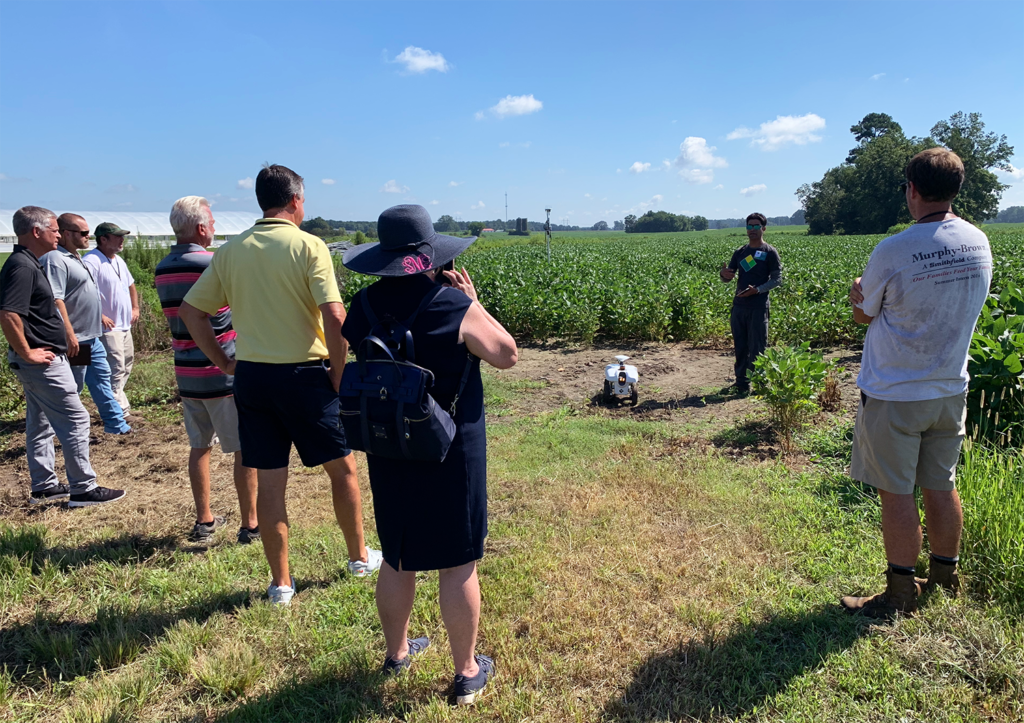
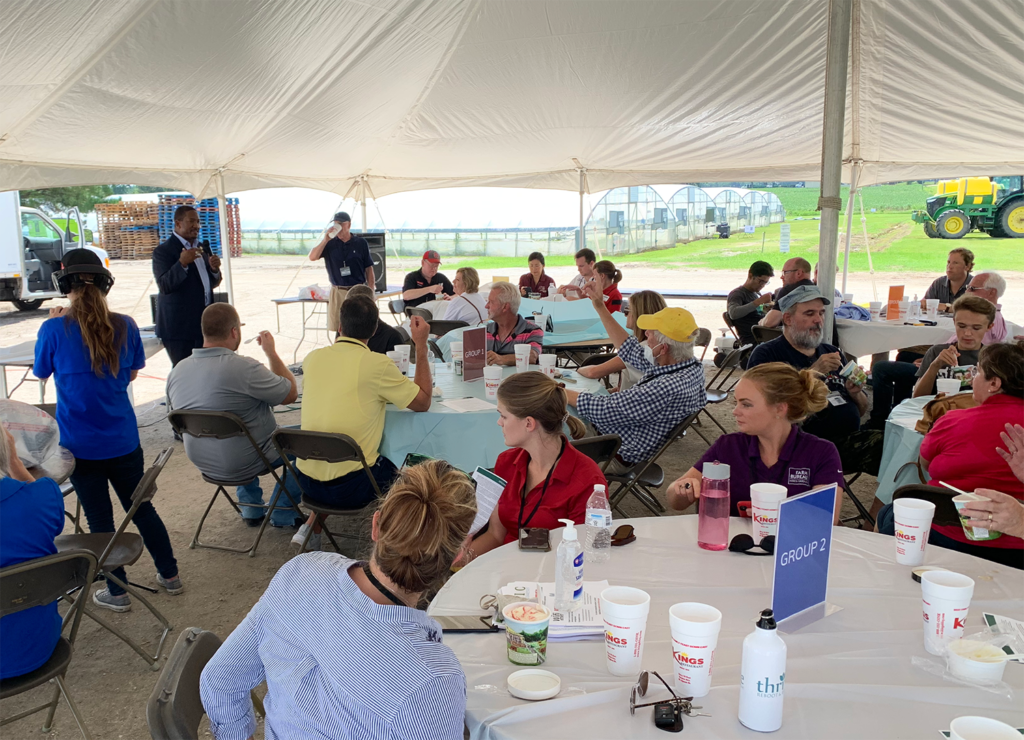
Following the morning demonstrations, attendees heard a series of “tent talks” (like Ted Talks, Didow said, but in a tent) from seven speakers viewing the issue of rural connectivity from different lenses, from government to health to equipment manufacturing.
There is still much work to be done to get farms, and rural communities generally, connected to the internet. But the event leaders were optimistic about what happens once we get there.
“Farmers are some of the most innovative, creative people in the world because they have to be,” said Kenneth Sherin, Broadband Access and Education Coordinator at NC State. “When we get connected, there will be innovation overload.”
